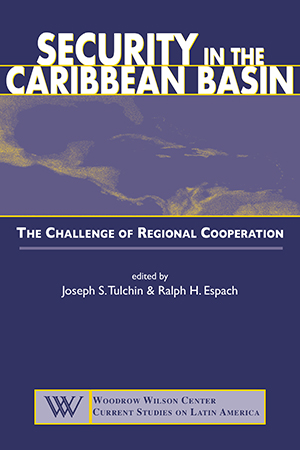
- 2000/232 pages
- Woodrow Wilson Center on Current Studies on Latin America
Security in the Caribbean Basin:
The Challenge of Regional Cooperation
Since the end of the Cold War, the security environment of the Caribbean Basin has dramatically changed from the containment of communism to a series of transnational threats—drug trafficking, migratory flows, economic crises, natural disasters—that demand cooperative, multilateral policies. This in turn, argue the authors of Security in the Caribbean Basin, calls for a redefinition of such basic concepts as sovereignty and the nature of national and regional security interests, and a reevaluation of such basic issues as the role of the military in a democracy and the nature of the region's ties to the United States.
Addressing these concerns, and offering both scholarly analysis and operational perspectives, the authors provide a theoretical and practical framework for the development of a more cooperative security system in the region.







